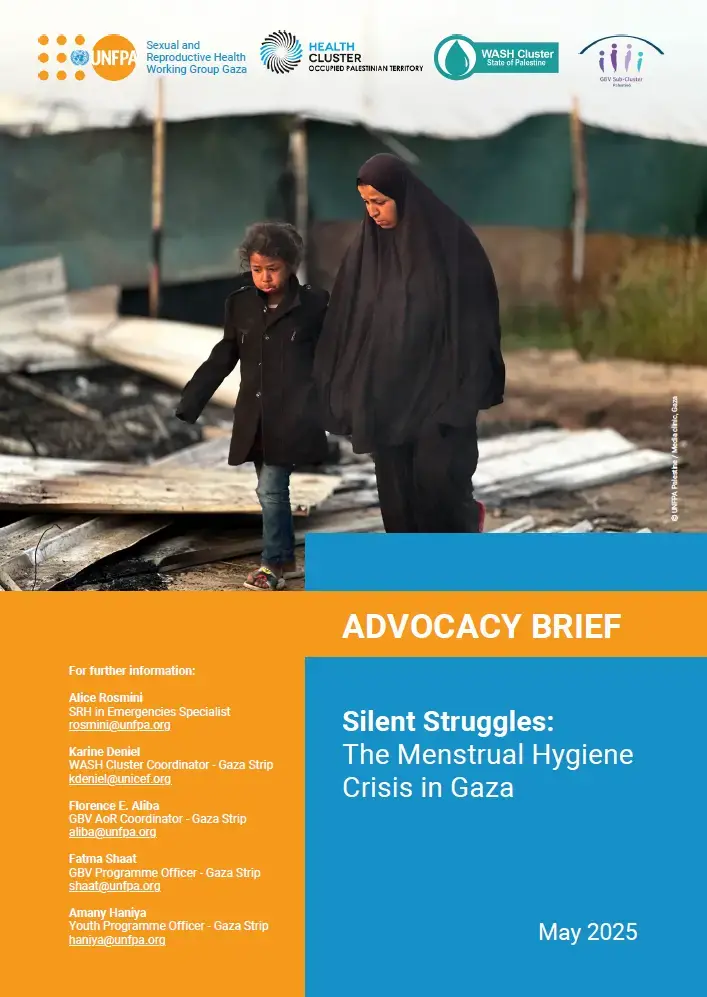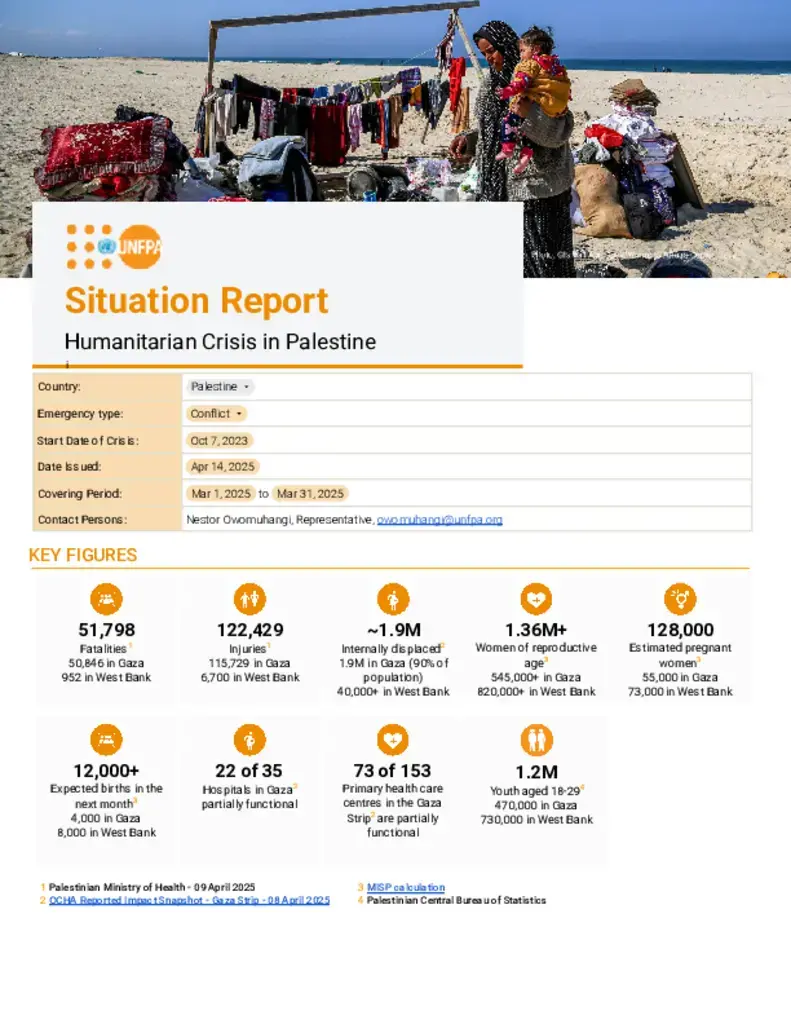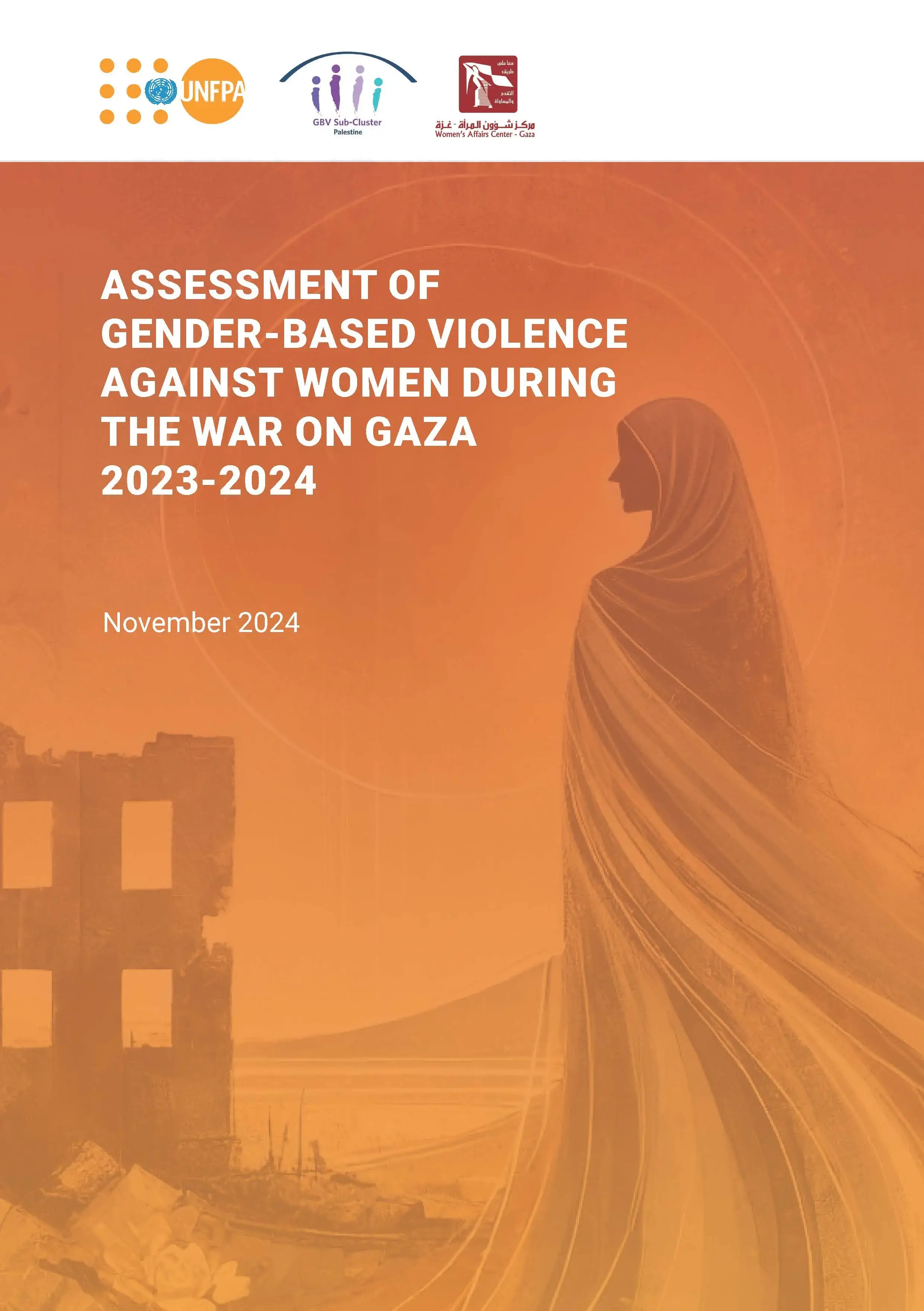GAZA STRIP, Occupied Palestinian Territory – “Sometimes I need pads and soap more than I need food,” said Aisha*, a young displaced girl in Gaza, revealing a serious burden too often overlooked in crisis settings – menstrual health.
Sexual & Reproductive Health
Story
From natural process to nightmare: How Gaza’s women and girls cope with their periods in a war zone
02 June 2025
Video
In Gaza, mothers like Adlah deserve to give birth safely
Every mother deserves a safe birth. Unfortunately, it wasn’t the case for Adlah, who had to deliver her baby under bombardment and displacement in Gaza. Hear her story.
See how UNFPA—the United Nations sexual and reproductive health agency—is supporting mothers during humanitarian crises: https://unf.pa/3EGVBzz
Story
"Every time my period comes, I wish I wasn’t a girl": Life in Gaza without water, sanitary pads, or privacy
28 May 2025
The past 19 months have been deadly for women and girls in Gaza. Since October 2023, on average, one woman and one girl has been killed every hour in attacks by Israeli forces. People have been displaced multiple times, trapped in increasingly shrinking spaces, with no safety, and where the humanitarian crisis is becoming more desperate by the day.

Publisher
UNFPA
Number of pages
8
Author
UNFPA , Health Cluster, WASH Cluster, and GBV AoR Cluster
Publication
Silent Struggles: The Menstrual Hygiene Crisis in Gaza
Publication date
28 May 2025
In Gaza, nearly 700,000 women and girls are facing a hidden emergency. With sanitation systems collapsing, supplies blocked, and privacy lost in overcrowded shelters, menstruation has become a source of fear and shame.
This advocacy brief highlights the urgent need for menstrual health support, shares powerful firsthand testimonies, and outlines key actions to restore dignity and safety for women and girls.
Read the full brief and join the call to action
Video
The aid blockade in Gaza must end now
Women and children in #Gaza are being starved in full view of the world. On top of this, they face severe shortages of medicine and life-saving care amid relentless attacks on hospitals.
Video
Mothers in Gaza are struggling to feed their children
Giving birth shouldn't be a fight for survival.
In Gaza, Nisma had to flee her home pregnant and now struggles to feed her newborn.
Statement
Statement by UNFPA Regional Director for Arab States region on forced displacement orders putting women’s safe house on the frontlines in Gaza
19 May 2025
Cairo, 19 May 2025– “UNFPA is deeply concerned about the potential closure of the only safe house for women in Gaza as Israel’s latest forced displacement orders in Deir Al-Balah and Khan Younis render it inaccessible.

Publisher
UNFPA
Number of pages
7
Author
UNFPA
Situation Report
Palestine Situation Report #16
Publication date
15 April 2025
In March 2025, UNFPA continued to deliver life-saving SRH and GBV prevention and response services across Gaza and
the West Bank, despite the escalating conflict, repeated displacement, and severe access constraints. Border closures, insecurity, and attacks on health facilities and aid workers have significantly disrupted service delivery, yet UNFPA and partners remained on the ground, responding where access was possible.
Press Release
Japan Grants USD 4,000,000 to Support Women’s Health and Protection Amid Crisis in Gaza and West Bank
09 April 2025
8 April 2025 – Jerusalem, Occupied Palestinian Territory

Publisher
UNFPA
Number of pages
7
Author
UNFPA, GBV Sub Cluster, Women's Affairs Center-Gaza
Situation Report
Assessment of Gender-Based Violence Against Women during the War on Gaza 2023-2024
Publication date
12 November 2024
This report from Gaza highlights key gender-based violence (GBV) trends for September 2024.

